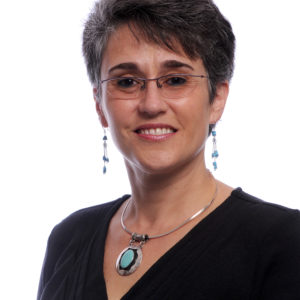Educator Spotlight:
Rebeca Rosengaus

Rebeca Rosengaus
Associate Professor and Associate Chair
Marine and Environmental Sciences Department, COS
Can you describe your role at Northeastern?
I’m a faculty member of the Marine and Environmental Sciences Department. I’ve been at Northeastern since 2002, and since 2015, I’ve been the Associate Chair of the department. I have also been the chair of the undergraduate curriculum committee for my department.
Could you tell me about your penguin project?
I’ve been teaching this class, Ecology and Evolutionary Behavior, for several years. Upon my return from Melbourne, Australia, I implemented a new in-class activity based on data collected by researchers of one of the largest penguin colonies in Australia. In Melbourne, this colony of blue penguins, the smallest penguins in the world, lives in the rocky cliffs next to the ocean. The penguins go out to the sea to hunt, then come back to the colony. Each penguin has a microchip that has their number and sex. Upon their return from their feeding trips, the penguins are shunted into single-file trails where a balance is hidden. As the penguins run up the cliff, they are weighed.
A sample of data, six males and six females, gets uploaded every night. My students then log in once a week to the database, download that week’s numbers, and compile a spreadsheet. From the data, students figure out if the penguins gained or lost weight and how many days they spent at sea feeding.
At the end of the semester we do a statistical analysis of all the data. We set up hypotheses and relate what we see with changes in air and water temperatures and humidity to see if global warming is affecting them or not. Then students engage in statistical analysis, make graphs, and interpret the data.
What other classes are you teaching?
I teach Introduction to Evolution, where we learn about evolutionary change, what evolution is, and, more importantly, what evolution is not. I also teach a class on sociobiology, a course where students learn about factors that may influence the evolution of group living and group-living behavior.
Can you talk about your work supporting diversity and inclusivity in the College of Science?
The Howard Hughes Medical Institute awarded Wendy Smith and Mary Jo Ondrechen a grant to foster inclusivity and diversity among students and faculty. The main goal is to increase the representation of minorities in the sciences.
I am a facilitator with four other people, working on that initiative. Together we run teaching circles that bring together faculty from the College of Science. There’s a lot of discussion about how we can foster more diversity, inclusiveness, and a feeling of belonging.
African-American, black, Latino, and Hispanic people have a higher probability of dropping out from the sciences so we’re trying to understand why that is happening and come up with strategies to prevent this. The goal is to have students persist throughout their career at Northeastern and also persist in the sciences in general.
The goal of the teaching circles is to bring in new techniques for teaching. Some students hate talking in class, but there are many different ways you can include new strategies so that everyone’s voice is heard. For example, you can have students discuss a topic, write their answer, make a ball, and throw it in the center. Then the educator reads it and now all of us are hearing the voices of other people that may have not wanted to be vocal. I also use Poll Everywhere, where I poll the class and students anonymously respond using their cell phone. Their input then gets graphed and the output gets included in my PowerPoint lecture. In this way, students who are on the shy side can also participate in lecture without being put on the spot.
Other techniques that I’ve done to make students feel comfortable is adding research from minority professors. I put the photo of the researcher in my slides and we discuss their research. This strategy shows my students that there are people just like them who are successful in the field and that they can relate to them.
What does it mean to you to be both an educator and a learner, since learning happens everywhere at Northeastern?
I don’t think you can be an educator without being a continuous learner. You know, we learn in many different ways. I learn when I’m preparing my classes. I learn when I’m updating the classes; every time that something comes up in the news, I add it to my lectures. You learn about the science, but you also learn about how to be a better teacher, a better communicator, and how to be a better inclusiveness promoter.
